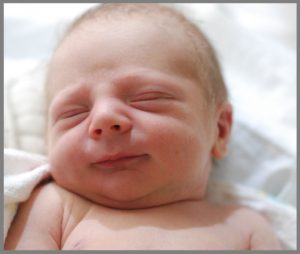(presented by Eric W Jepson, president of the AML, at the Friday-morning session of our recent conference)
.
I’d written two other Friday welcomes before starting this one, but neither was right. Somehow, they both ended up being about death. Which didn’t seem like the right way to begin a conference.
And so, why not try now to begin with birth?
I wasn’t counting at the birth of my first kid, but it turned into an emergency caesarian and I figure at least half a dozen in the surgical theater. Two surgeons, the midwife, an anesthesiologist, at least a pair of nurses—to say nothing of parents and child.
Strictly speaking, most births don’t require an audience. Although we, for very good reasons, tend not to encourage moms to go solo, most of the time it would probably be just fine. We evolved to do this after all. And we’ve been doing it a long long time.
Part of my pitch to students as I persuade them to like poetry is this: Poetry (I tell them) is the oldest human artform. Unless it was banging rocks together. I suppose music might have been first, but music and poetry share most of their DNA anyway—rhythm, sound. Poetry ( I tell them) is your inheritance as a human being. It is your right.
I don’t have publishable evidence that any of that is true, but it is.
I’m also convinced that long before anyone celebrated the poetic stylings of Ug, more than one person showed up to celebrate birth, that one bit of creation we’ve all participated in, at least once.
So: Friday. The beginning of this conference and here we have—pause to count—1, 2, 3, 4 … [n] people. And, perhaps, if the recording works, more later. Or perhaps not. Who knows. This is not my best work. You are all witness. But babies—even though they’re great!—are not exactly finished either. If it weren’t for our oversized brains, some scientists say, we might well spend another three months in our mother’s womb. Or take drama—stage and screen. No matter how much work the writer put in, it’s nothing like done before directors and actors and gaffers get involved. This year’s Lifetime Achievement designee, Carol Lynn Pearson, and our Smith-Pettit honoree, Melissa Leilani Larson, can both speak knowledgeably to this point. It takes people to make great art.
And even a work that is somehow, allegedly, the work of one mind, won’t take its first breath until another mind welcomes it in. Hamlet’s not the greatest thing ever written because it’s the greatest thing ever written—if it’s the greatest thing ever written, it’s the greatest thing ever written because more people have read it and watched it and performed it and pondered it and argued over it and written about it than anything else ever written.
So welcome! Welcome as we bring our minds to bear upon the task of creation. All of the work here today has been created by those presenting it. And all of it, in some way, furthers the creations of others, pushes them further along, toward greatness.
And so, today, let us read and watch and perform and ponder and argue and write and celebrate together. This is what the Association for Mormon Letters is all about. We’re for this stuff.
Let’s welcome some babies.


.
I forgot to change [n] to the actual number at the day. I want to say … seventeen at that opening moment? We’ll have to check the recording….